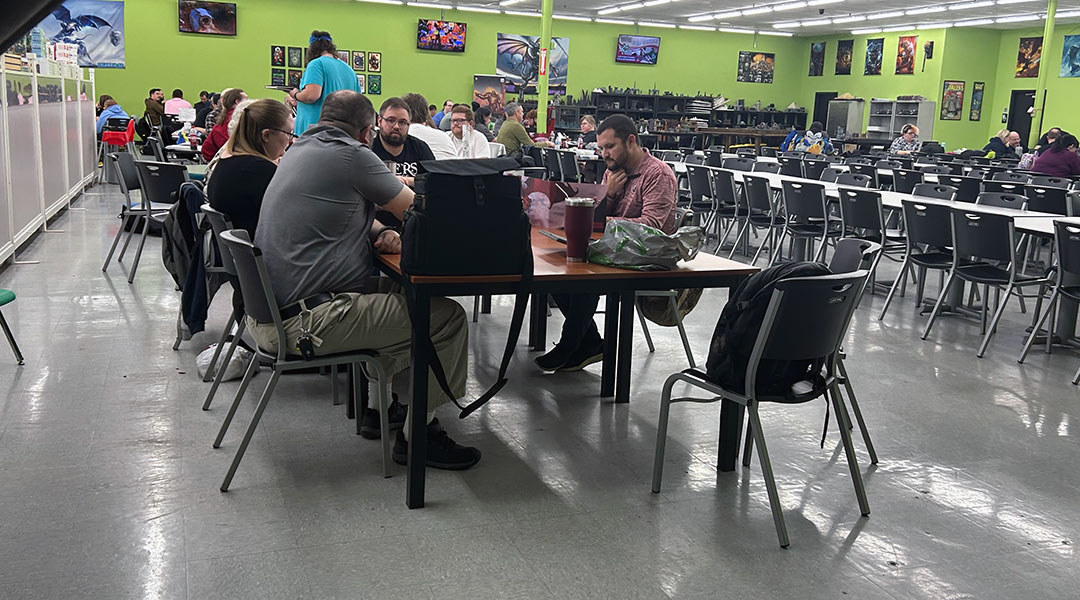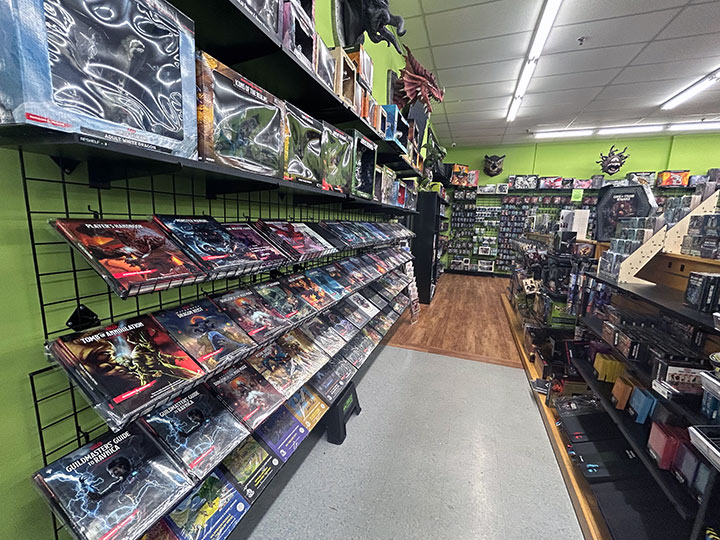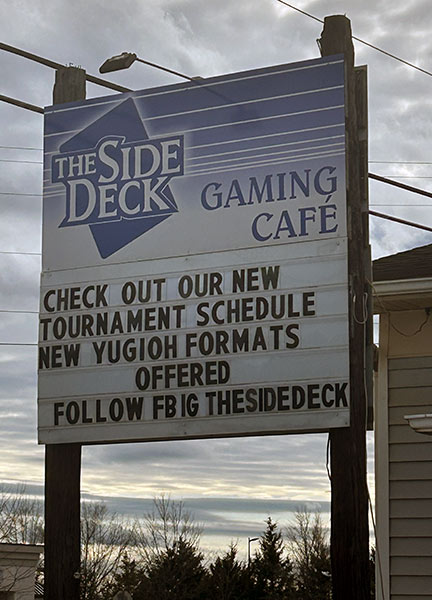Members of the Midlands Dungeons and Dragons community play at Columbia’s Firefly Toys and Games in a weekly game night. (Photos by Raymond Escoto)
The Dungeons and Dragons community in Columbia remains wary after a monthlong controversy surrounding the popular table-top role-playing game.
Trust between the community and Wizards of the Coast, the company that publishes Dungeons and Dragons (D&D) and a subsidiary of the Hasbro toy company, was broken after changes to the game’s licensing agreement were leaked to the press early last month.
The proposed changes would have restricted the creativity and financial viability of independent publishers and creators not directly affiliated with Wizards of the Coast. The player base stood in solidarity with them after many realized the game materials and publishers they cared about were being threatened.
On Jan. 27, Wizards of the Coast announced the changes would not be implemented after a massive fan backlash.
But some remain skeptical about the future of the game despite the apparent victory. The upcoming and possibly final edition of the game, One D&D, is set for release in 2024.
“I think Wizards of the Coast is relying on the short-term memory of the community, and they will likely bring a new (license) when they roll out One D&D,” said Phil Allison, an administrator of D&D Adventurer’s League of Columbia.
Kevin Coolidge, the staff dungeon master who manages D&D games at Lexington’s Side Deck Gaming Café, agreed.
“I think One D&D will be a more closed system,” he said. “I think they will try something like this again.”
Members of the community had strong opinions prior to the Jan. 27 announcement.
“I felt like it was a greed-based money grab from the most profitable role-playing game company in the table-top RPG industry,” Allison said.
Allison wasn’t the only one who thought the proposed changes were greedy.
“They basically were trying to get a massive fraction of profits from third-party resources for the game,” said Aaron Justice, a USC medical student and D&D player. “They are only worried about how to best monetize the game rather than making a great product for the community to enjoy.”
Mark Mynhier, a board member of South Carolina Area Roleplayers and Boardgamers and a fellow administrator of the Adventurer’s League, called the decisions “short sighted.”
Mynhier blamed Hasbro more than Wizards of the Coast.
“It looked like they wanted to put the small publishers out of business so that they can have a monopoly on the product,” he said.
The Side Deck’s Coolidge wasn’t a fan of the changes either.
He said the third-party materials he likes to use in his games would have been affected.
The game license published in 2000 allowed independent creators, publishers and individuals to create and sell their own materiel for the game.
That move expanded the game’s community and resources and helped D&D become as big as it today. The license is responsible for the creation of entire companies, such as Paizo and Kobold Press, who publish third-party materials that range from custom adventures to full, standalone games that compete against D&D.
The proposed changes would have given Wizards of the Coast more creative and legal control over these third-party materials and forced those creators to pay fees if their gross revenue was more than $750,000. The terms of the license also could have been changed at any time with only a 30-day notice to creators.
The leak and eventual announcement sparked outrage among the 50+ million worldwide community.
This culminated in the #OpenDND social media campaign and petition calling for the full reversal of the proposed changes. The campaign was spread across platforms such as YouTube, TikTok, Twitter and Reddit.
Many prominent online creators, such as Critical Role, a multimedia company based on D&D that recently signed a multi-year film and TV deal with Amazon Studios, supported the campaign.
Others created analyses, reaction videos and even called for boycotts against official material published by Wizards of the Coast in support of the campaign.
After the Jan. 27 announcement, the #OpenDND petition website remains up, according to a post there, “as a monument to how this community pulled together when our liberties and livelihoods were threatened.”
“Maybe this will make them think twice about trying it again,” said Keira Crawford, a USC student and D&D player.
The local Roleplayers and Boardgamers’ Mynhier echoed that sentiment.
“I hope Hasbro has learned their lesson in this,” he said. “Without the community, the game dies.”




